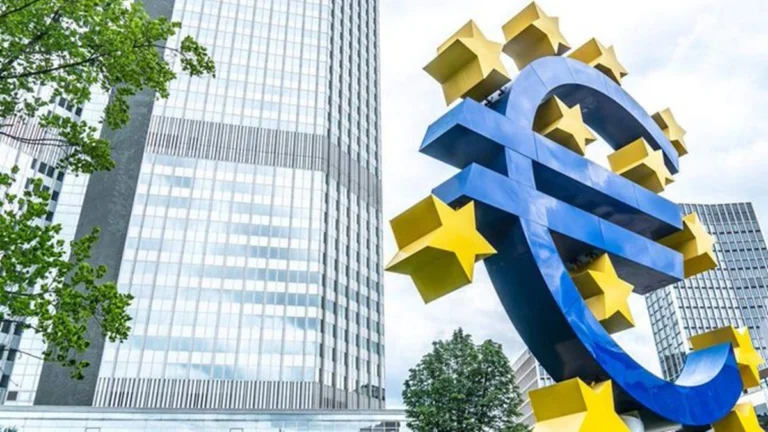European Central Bank Leaves Rates Unchanged, Stays Cautious on Next Steps

X/ @ForexMartEU
July 25, 2025 Hour: 8:01 am
The stabilising inflation outlook is putting the ECB in a favourable position to wind down its rate-cutting cycle.
On Thursday, the European Central Bank (ECB) decided to leave key interest rates unchanged, falling short of giving any clues about its next move.
RELATED:
European Commission to Review Polish Government’s Criticism of Grok
The stabilising inflation outlook, coupled with a resilient economy, is putting the ECB in a favourable position to wind down its rate-cutting cycle. However, the central bank has retained its wait-and-see mode with the bar for further rate cuts raised.
RATE CUTS HALTED
The ECB decided to keep the three key interest rates unchanged and the rate on the deposit facility through which the central bank steers its monetary policy stance stood at 2 percent.
The pause of the rate cut came after the ECB trimmed the deposit facility rate by two percentage points in its rate-cutting cycle starting from June last year.
The ECB initiated the rate-cutting cycle in a bid to wind down its starkly restrictive monetary policy, under which the deposit facility rate was pushed to a historical high of 4 percent (in 2023) in an unprecedentedly aggressive cycle of rate hikes.
ECB President Christine Lagarde confirmed at the press conference following the governing council meeting on Thursday that the ECB is “on hold.”
The ECB has repeated in its latest monetary policy statement that it is not pre-committing to a certain rate path and stands ready to make sure that the medium-term inflation stabilises at its target, a sign that it is not yet ready to conclude the rate-cutting cycle.
A GOOD POSITION
In general, the ECB struck a positive note on the development of inflation and economic growth in the euro area, which, according to Lagarde, has put the central bank “in a good position.”
Inflation in the euro area inched up to 2 percent in June from 1.9 percent in May, according to figures released by the statistical office of the EU at the beginning of this month.
The medium-term inflation target is also anchored at 2 percent, Lagarde told the press conference. Looking ahead, the ECB disclosed that most measures of longer-term inflation expectations continue to stand at around 2 percent.
It came as a surprise that the economy in the euro area grew by 0.6 percent in the first quarter, beating expectations. On top of the front-loading effects of the U.S. tariffs, consumption and investment also grew in the first quarter. “The economy has so far proven resilient overall in a challenging global environment,” Lagarde added.
DOOR NOT CLOSED YET
Lagarde echoed her colleagues on Thursday that the ECB will not move away from some minor deviations of inflation, indicating that the threshold for any possible rate cuts will be higher.
ECB board member Isabel Schnabel said last week that the interest rates are “in a good place” and “the bar for another rate cut is very high.”
Fiscal and structural policies should make the economy more productive, competitive and resilient. The massive fiscal stimulus by Germany, which is part of what Schnabel calls a “large fiscal impulse,” will support the economy.
In spite of all the positive developments that could pave the way for an end to the rate-cutting cycle, the ECB is not ready to close the door by repeating that it will stick to its data-dependent and meeting-by-meeting approach to set the rates.
“We are now confident that the inflationary shock of the last few years is now behind us. Our job now is to look at what’s coming,” Lagarde said.
Economists like Carsten Brzeski, global head of Macro for ING Research, believe the possibility for the ECB to make another 25-basis-point cut in September is still there.
Brzeski argued that the actual inflation could come in lower than the ECB expects and that hard macro data could disappoint over the summer, which might lead to a “final cut” in September.
Should fiscal stimulus and better-than-expected tariff negotiations give rise to inflationary pressures, Brzeski suggested that the debate at the ECB could quickly shift to when to hike rates.
teleSUR/ JF
Source: Xinhua






